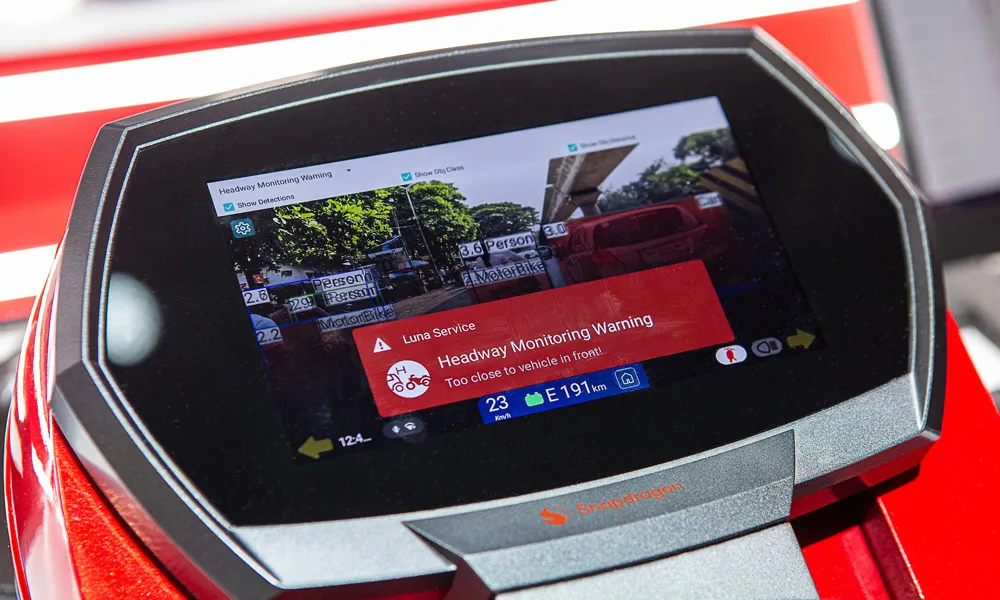New consumer research conducted by Johnson Controls claims that 97 per cent of Americans are ready for new start-stop technology that improves the fuel economy of their vehicle. The research was conducted to gain understanding of how consumers view fuel-saving power train technologies based on attributes such as purchase price, fuel economy, annual fuel cost and performance. Focus groups across US major metropolitan areas, along with 1,200 survey respondents, provided feedback on efficient vehicle technolog
May 18, 2012
Read time: 2 mins
RSSNew consumer research conducted by 764 Johnson Controls claims that 97 per cent of Americans are ready for new start-stop technology that improves the fuel economy of their vehicle. The research was conducted to gain understanding of how consumers view fuel-saving power train technologies based on attributes such as purchase price, fuel economy, annual fuel cost and performance. Focus groups across US major metropolitan areas, along with 1,200 survey respondents, provided feedback on efficient vehicle technologies.
"This research further confirms that while US consumers are still generally unfamiliar with the technology, start-stop vehicles will provide the improved fuel economy and performance they want, at a price that is acceptable to them," said Kim Metcalf-Kupres, vice president for global strategy and marketing, Johnson Controls Power Solutions. "Most people will pay a little more for better fuel economy, as long as they don't have to sacrifice performance."
First introduced in Europe, start-stop technology automatically shuts the engine off during idle, and restarts when the driver releases the brake pedal or engages the clutch, resulting in improved fuel economy and emissions reductions. The system relies on an advanced lead-acid battery that can handle the deep cycling requirements of more frequent starts throughout the course of a trip. Because it works with a traditional internal combustion engine, Johnson Controls says the technology is much simpler and lower in cost than hybrid or electric vehicles today.
According to the research, most consumers like the idea of their engine turning off at idle - the majority because of fuel cost savings, and another quarter of consumers think the idea "just makes sense." Additionally, more than one-third of those surveyed would pay up to $500 for a five per cent improvement in fuel economy, and that figure rises significantly when increased fuel prices, lower premiums, or greater fuel economy are considered.
The annual production of start-stop vehicles is expected to grow from three million today almost entirely in the European market, to 35 million globally by 2015. It is claimed that start-stop vehicles could achieve 40 per cent of the new vehicle market in the United States in that same time frame.
"This research further confirms that while US consumers are still generally unfamiliar with the technology, start-stop vehicles will provide the improved fuel economy and performance they want, at a price that is acceptable to them," said Kim Metcalf-Kupres, vice president for global strategy and marketing, Johnson Controls Power Solutions. "Most people will pay a little more for better fuel economy, as long as they don't have to sacrifice performance."
First introduced in Europe, start-stop technology automatically shuts the engine off during idle, and restarts when the driver releases the brake pedal or engages the clutch, resulting in improved fuel economy and emissions reductions. The system relies on an advanced lead-acid battery that can handle the deep cycling requirements of more frequent starts throughout the course of a trip. Because it works with a traditional internal combustion engine, Johnson Controls says the technology is much simpler and lower in cost than hybrid or electric vehicles today.
According to the research, most consumers like the idea of their engine turning off at idle - the majority because of fuel cost savings, and another quarter of consumers think the idea "just makes sense." Additionally, more than one-third of those surveyed would pay up to $500 for a five per cent improvement in fuel economy, and that figure rises significantly when increased fuel prices, lower premiums, or greater fuel economy are considered.
The annual production of start-stop vehicles is expected to grow from three million today almost entirely in the European market, to 35 million globally by 2015. It is claimed that start-stop vehicles could achieve 40 per cent of the new vehicle market in the United States in that same time frame.









